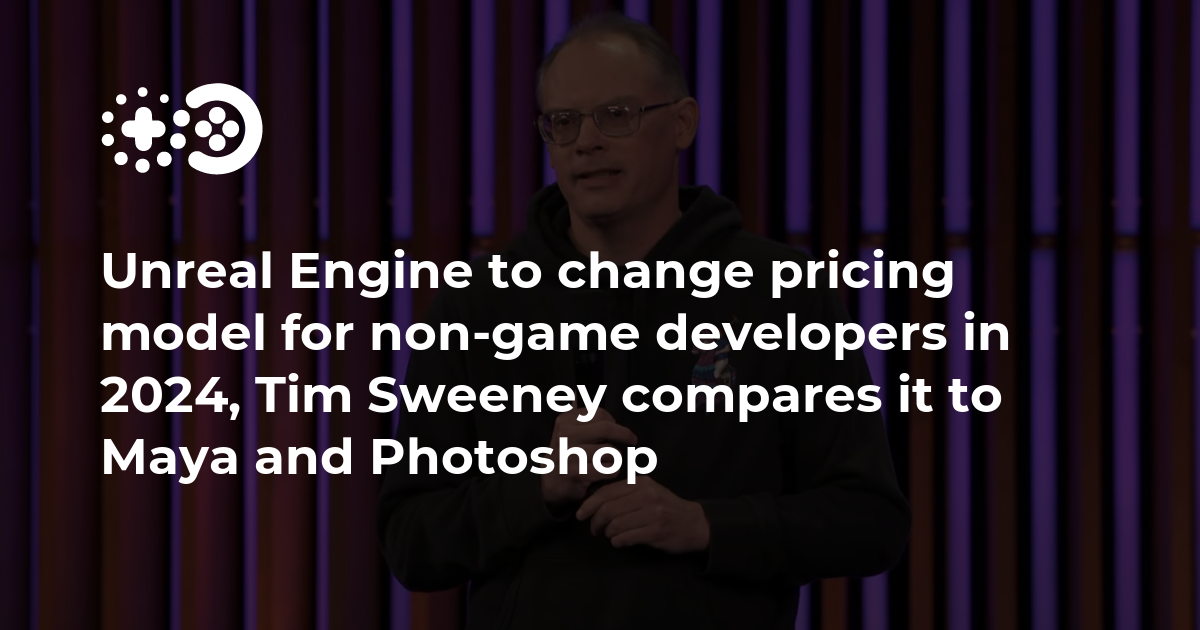TL;DR: As predicted, Unity has changed course on its Unity Runtime Fee after severe backlash from the community and weeks of bad press. It reformulated the maligned monetization plan in a way that many developers find satisfactory. The new revenue-sharing scheme will kick in with the next LTS version of Unity in 2024.

Unity finally backtracked on its proposed runtime fee announced earlier this month. After apologizing last Monday, it promised to rework the monetization scheme, incorporating community feedback. By Friday, the company had another apology for the fiasco, and an alternative pricing solution with significant changes.
"I want to start with simply this: I am sorry," Unity Create head Marc Whitten wrote in an open letter to the community. "We should have spoken with more of you, and we should have incorporated more of your feedback before announcing our new Runtime Fee policy."
Initial reactions to the changes seem generally positive. Not everyone is happy about it, but there were no death threats this time. Many feel the compromises are beneficial, especially for indy developers.
I wish they had launched this, because this is super acceptable. I do think a lot of the damage done is going to linger at least a bit. Trust is a fickle thing and it's hard to say exactly what the damage will be, but this should count as a first step to rebuilding that trust.
– Rami Ismail (را�...ÙÂ) (@tha_rami) September 22, 2023
One of the most significant concessions Unity made was an exemption for Unity Personal Plan users. This was one of the primary beefs that the community had. Large companies on the higher tier subscriptions – Unity Pro and Enterprise – could more easily absorb the proposed Unity Runtime Fee, especially on triple-A games. The charge could have caused irreparable hardships for smaller developers working with paper-thin margins.
To stay on the Personal Plan, the developer must make less than $200,000 per year, double the previous limit. These studios will also not be required to display a "Made with Unity" splash screen.
Developers on Pro and Enterprise plans also received some breaks. The primary benefit is that game makers will not be charged retroactively. The new Unity Runtime Fee will only apply to titles made under the next long-term support version of the game engine, which isn't due out until next year. Existing games and current under-development projects using older versions of Unity will avoid the fee.
"We should have spoken with more of you, and we should have incorporated more of your feedback before announcing our new Runtime Fee policy."
"We will make sure that you can stay on the terms applicable for the version of Unity editor you are using – as long as you keep using that version," Whitten said.
Pro and Enterprise developers affected face a revenue-sharing expense of 2.5 percent, but this is only if the studio made over $1 million in the previous 12 months. The terms also clarify that the fee only applies to initial installs, not re-installations.
Technically, this was something that Unity said developers were misunderstanding in the first version of the runtime fee. It tried to clarify that unique users would only count once, but the explanation fell on deaf ears. The community was too riled up about everything else the plan entailed to care whether it had misunderstood how the runtime counted installations. Plus, the explanation was easy to miss since Unity buried it in a lengthy tweet.
Furthermore, developers can choose either a 2.5-percent revenue share based on self-reported numbers or the calculated amount based on the monthly runtime count. Unity will always bill the lesser of the two amounts.
All in all, Unity's effort to correct course should be appreciated by most of those affected. However, the company could have avoided the dispute with better communication and transparency.
